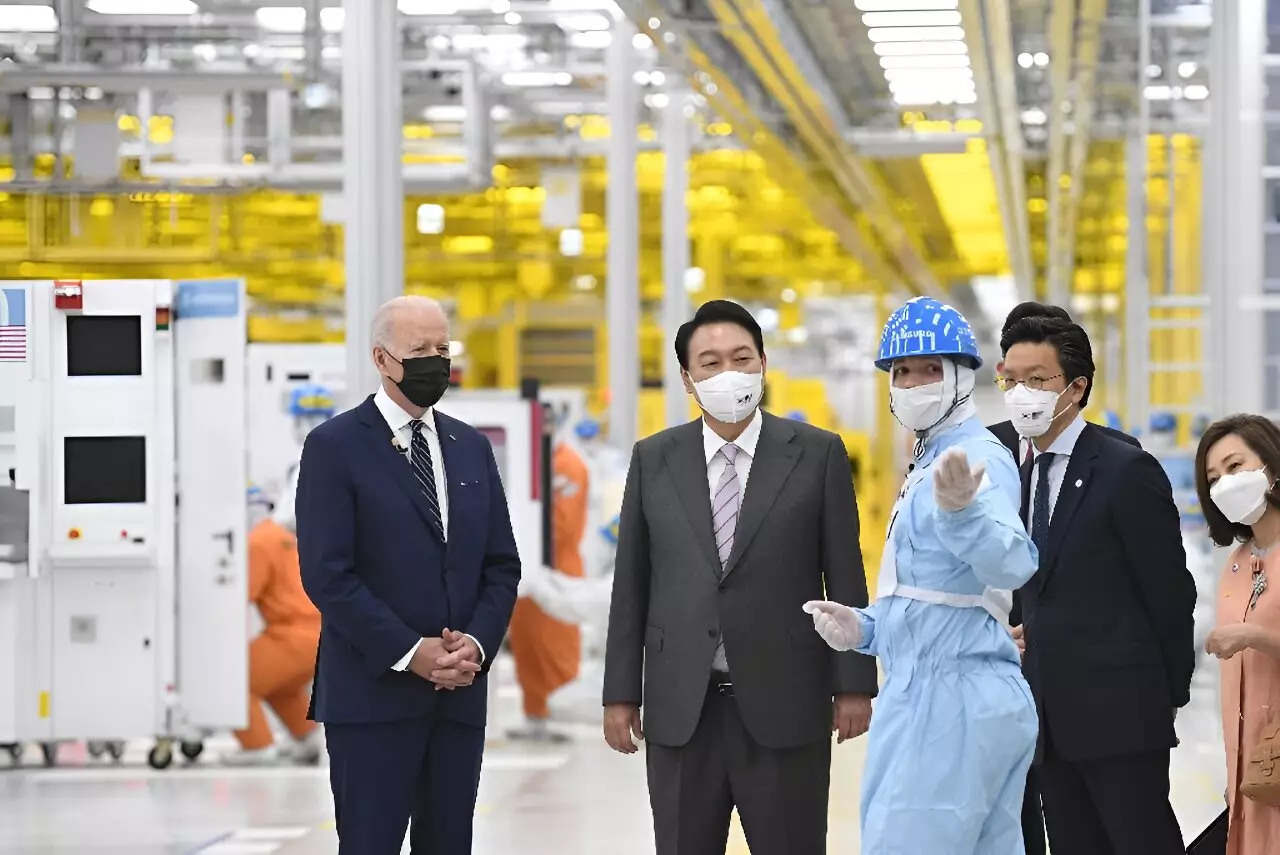South Korea is making a bold move to invest almost $7 billion in artificial intelligence by 2027 in a bid to establish itself as a global leader in cutting-edge semiconductors. This decision was announced by President Yoon Suk Yeol, highlighting the importance of the semiconductor industry as a crucial pillar of South Korea’s export-driven economy.
The country is already home to major players in the semiconductor industry, such as Samsung and SK Hynix, which are known as the world’s top two makers of memory chips, including high-bandwidth memory (HBM) used in AI hardware. With the ever-increasing demand for advanced chips to power AI systems, South Korea is looking to position itself at the forefront of innovation in AI chips.
Semiconductors play a vital role in the global economy, being utilized in a wide range of products from kitchen appliances and mobile phones to cars and weapons. The success of AI products like ChatGPT has led to a surge in demand for advanced chips, propelling the semiconductor industry to the forefront of technological advancement.
Motivated by geopolitical concerns and the intensifying US-China rivalry, countries like South Korea and Japan are ramping up efforts to boost domestic chip production through substantial investments and subsidies. The current AI chip market is predominantly dominated by Silicon Valley giant Nvidia, with SK Hynix supplying HBM chips.
President Yoon expressed South Korea’s ambition to lead the world in AI technology, surpassing the realm of memory chips to conquer the future AI chip market. He described the semiconductor competition as an industrial and all-out war between nations, emphasizing the strategic importance of AI in shaping the future of the semiconductor industry.
South Korea’s plan to invest 9.4 trillion won ($6.94 billion) in the AI and AI semiconductor sectors by 2027 demonstrates its commitment to driving innovation and fostering the growth of innovative AI semiconductor companies. Additionally, a separate fund of 1.4 trillion won ($1 billion) will be established to support the development of these companies.
The global semiconductor landscape is witnessing intense competition and strategic alliances as countries strive to secure their position in the market. Washington’s announcement of up to $6.6 billion in subsidies to Taiwanese giant TSMC reflects the efforts to encourage chip firms to produce their most advanced products in the United States.
Similarly, Japan unveiled up to $3.9 billion in subsidies to a chip venture as part of its initiative to revitalize the semiconductor industry, while China has been focusing on developing its domestic chip industry to reduce reliance on Western technology. South Korea’s commitment to investing in AI semiconductor technology aligns with this global trend towards enhancing technological capabilities and securing supply chains.
Semiconductors are a key export for South Korea, with semiconductor exports reaching $11.7 billion in March, the highest level in almost two years and constituting a fifth of the country’s total exports. This highlights the crucial role of the semiconductor industry in driving economic growth and sustaining South Korea’s export-driven economy.
South Korea’s ambitious investment in AI semiconductor technology sets the stage for the country to emerge as a global leader in the field. By focusing on innovation, collaboration, and strategic partnerships, South Korea is poised to reshape the semiconductor industry and accelerate the development of advanced AI technologies.


Leave a Reply